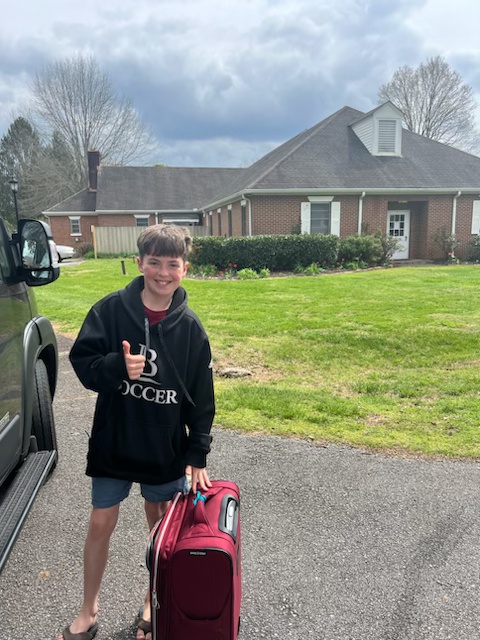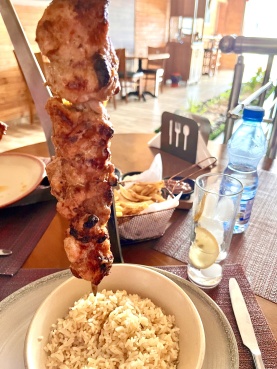The morning after Christmas, I heard the comforting chatter of Brad and Ramsay in the kitchen. Seated on the living room sofa, the cold pressed in against the window panes. The thermometer outside of Mama’s dark green cottage registered 28 degrees. Sleepily, I watched plumes rise from the chimney at a neighbor’s house, silhouetted against the soft glow of dawn. A cardinal darted into a magnolia tree and the clock on the mantle piece rhythmically announced the seconds like a countdown: tick. tick. tick. One week until boarding school.
We celebrated New Year’s with friends. I chose a word for the year- intention-because of its definition, “stretching toward a new way of being.” Oh, yes, 2024 would bring plenty of challenges.
January 2nd, leaving Ramsay at school was downright heart wrenching, hugging our only child goodbye at age eleven: so young, so vulnerable. The dorm staff could not have been kinder or more supportive, but I could hardly breathe when Brad drove us off campus, like someone had taken my air away. I sobbed in long inhales and exhales like strange notes of an accordion. Brad talked me down several times that night from driving back to get Ramsay.


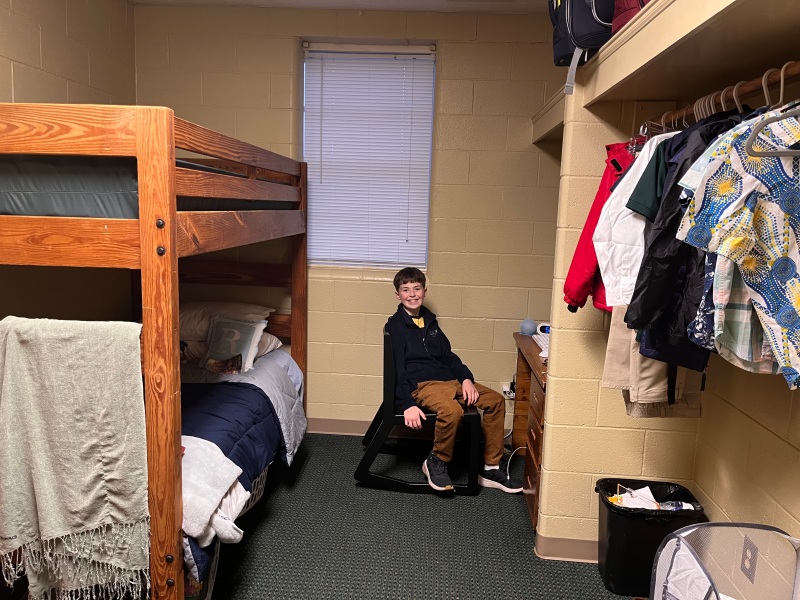
In the following days, our tight-knit family scattered like jacks on a map- Brad and our dog Biscuit back in Gabon, me living out of a suitcase stateside, yet hours from Rams. The school counselor assured us our anxiety and questioning our decision was common, so normal- we had to give the homesickness time. “Wait a month before visiting,” they suggested. With a leaden heart, I practiced yoga, took walks, leapt at a glass of wine at cocktail hour with my mother, and immersed myself in writing my fiction manuscript. The absence of Ramsay’s happy spirit was all encompassing and I impatiently waited for those 5-minute intervals when I got to speak to him on the phone, a fake smile pasted on my face. Be strong. Don’t cry til you hang up, I told myself each and every call- a pep talk that rarely worked those first few weeks.
Days passed without seeing his face, just the occasional text that gave me no sense of what life was like for him. Was he sleeping? Making friends? Doing okay in school? “Yes, he’s doing fine,” school staff encouraged, but I was lost, mothering from afar. Desperate to bring us all back under one roof, I day-dreamed of buying a house a few miles from the school. Maybe I could apply for a job there and beg Brad to quit the State Department. We’re serving our country, I told myself. The coup that led to this wasn’t our family’s fault. Count our blessings. We can bear anything for a year. Pretend it’s COVID again.
When I felt like crumbling under the weight of missing my child, I reminded myself it’s temporary, that Rams was getting an excellent education we could not otherwise afford him, and that this was an American experience he’d never had, having been raised overseas. I shifted perspective with positive affirmations- trust that this life is happening FOR us, not TO us, and, especially, I often whispered internally- he’s safe and in a caring place. My mommy guilt serves no one.
It was impossible to imagine that weeks later, we would have days without tears and Ramsay would be well-adjusted to dorm life and school abroad, but we all transitioned to a better place. I got to visit Rams after a month and although I was so choked up when I hugged him that I could only whisper, “Hey sugar, missed you,” I could tell he was settling in well. We gathered his sheets, bathrobe, uniforms and loads of clothes in his dorm room to take to the AirBnB rental. I threw out a stale, partially-eaten bread roll on his desk and poured out a murky cup of steeped-for-days tea.

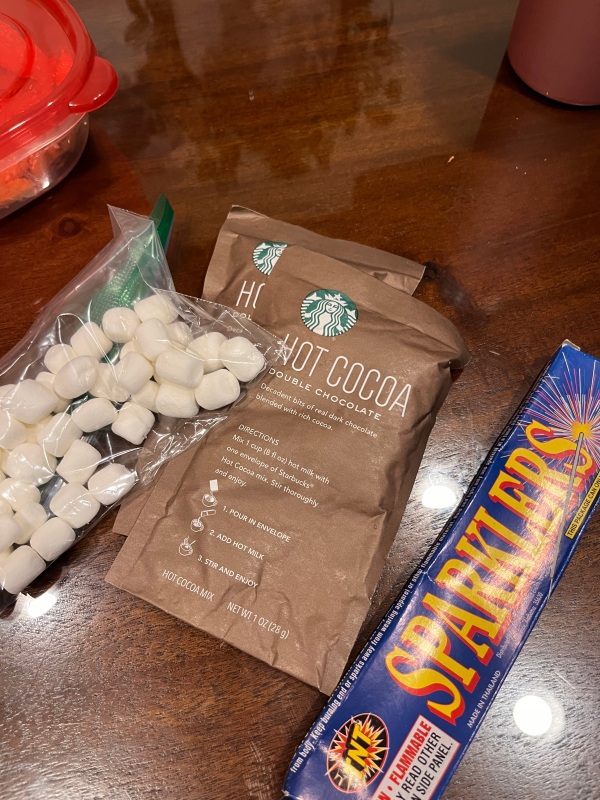

Rams and I chatted incessantly and indulged in little celebrations- sparklers and hot chocolate, a mini-pinata to break open, and a snow-tubing trip. I was determined to live in the moment all weekend as the deadline of returning him to campus pushed in like a storm on the horizon. He asked for, and received, new tennis shoes, a basketball, and a haircut. We took long walks, watched funny videos together, and cooked his favorite meals. He enthusiastically shared his new knowledge of race cars and sports teams.
During a steak dinner out, I detected Ramsay’s slight new southern accent as we laughed and played cards. (Ramsay won, not because I let him, but because he is a card shark like his Gran). I took breaks from folding laundry that night to listen to his soft breathing as he slept. Our weekend together released me from the constant fretting. It was evident his boarding school community was providing a caring net to fall into. My heart swelled with pride for this courageous fellow who had surmounted this monumental life change much better than I.
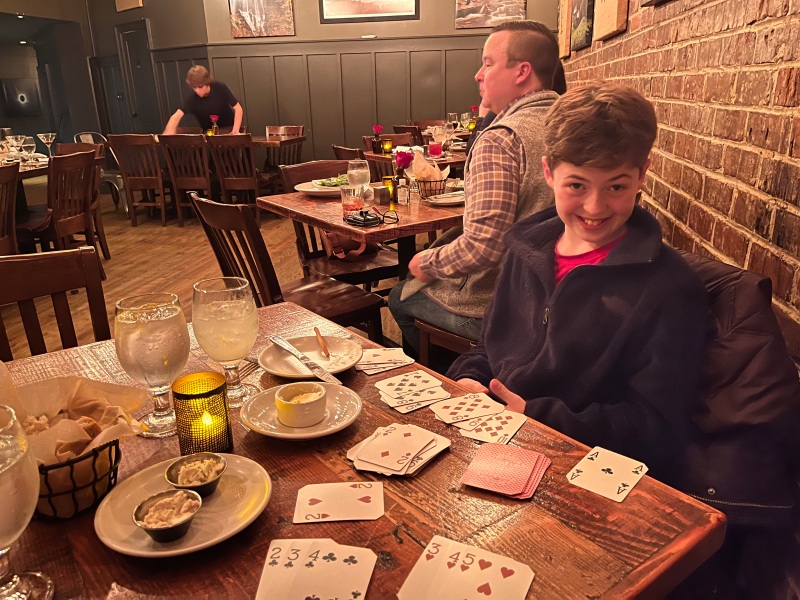
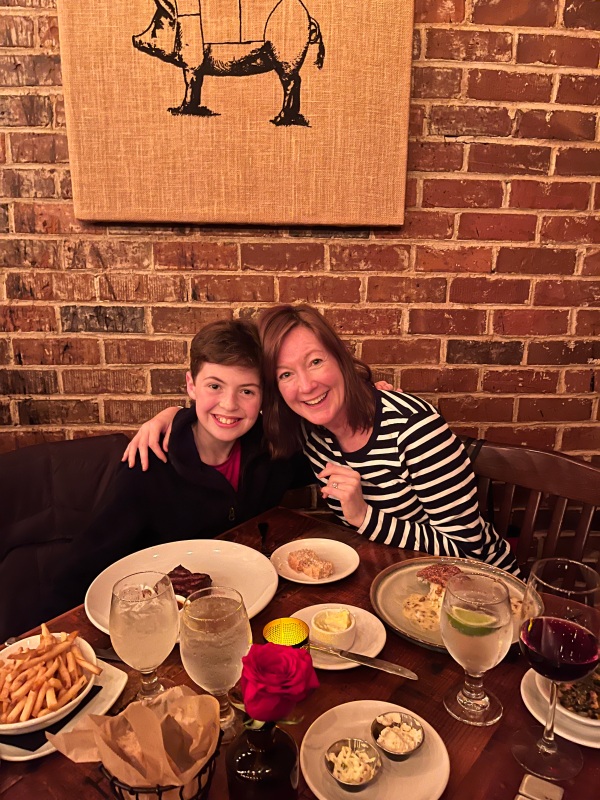
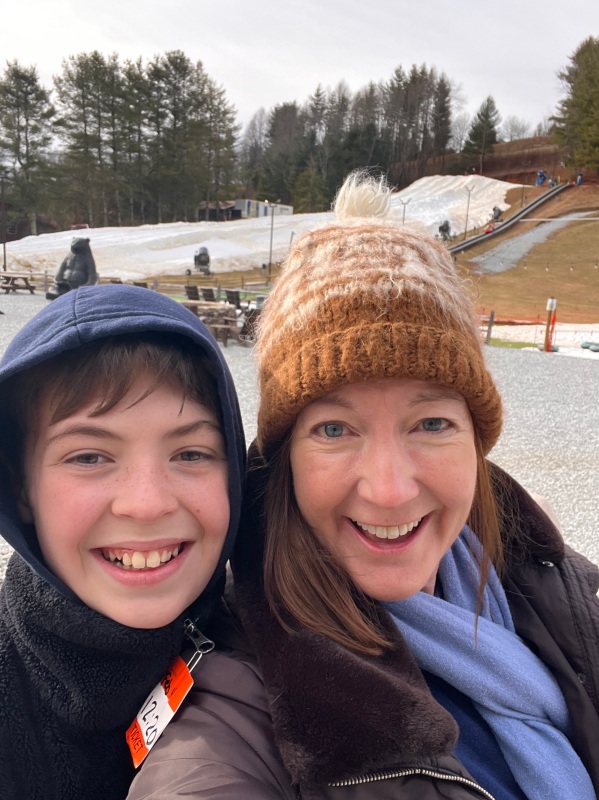
Weeks later, Brad flew to the U.S. and the three of us had a wonderful Spring Break with Ramsay. Rams had just taken his first unaccompanied flight to see his Godparents, whom he adores. “Were you scared?” I asked. “Mom, come on,” Rams replied. (This was a silly question for a kid who had been on 30 flights by age 5). “It was awesome- I got to see the cockpit and they gave me guac and tortilla chips.”
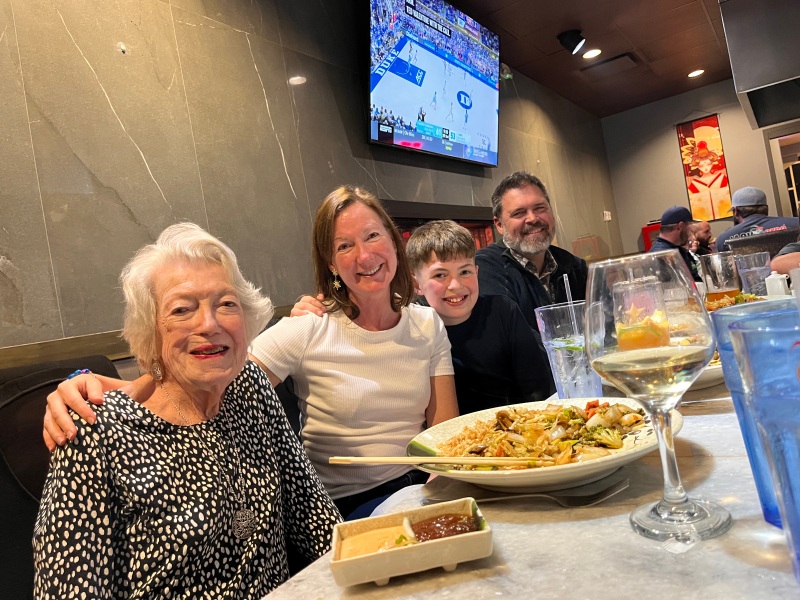
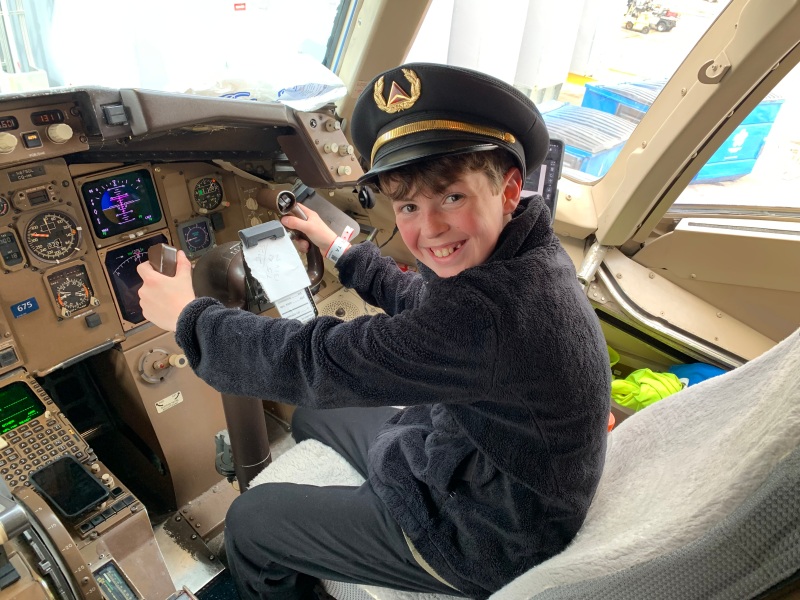

A few days later, it was time for me to return to Gabon. It’s just the three of us now in Libreville- me, Brad, and Biscuit. The first couple of days home, at 3:45pm, my heart filled with anticipation, waiting for Ramsay to burst through the door after school like he used to. Biscuit, too, seemed to remember our old routine and sat by the entrance, tail wagging. We needed a new schedule. To push through that witching hour, I began afternoon beach walks with Biscuit in tow, repeating adapt, adjust, and keep looking ahead.
In our absence, cherished friends and family hosted Ramsay for visits, fueling him with love and food, for which we are deeply grateful. Rams made the baseball team, has played laser tag, and got a signed puck at a hockey game. He does his own laundry, irons his clothes, does chores at the dorm, and is soaking up learning without language barriers. He chipped a front tooth, took it in stride, and coordinated with the school nurse to have it repaired at the dentist. He continues to amaze us with his positivity, resourcefulness, and gumption.
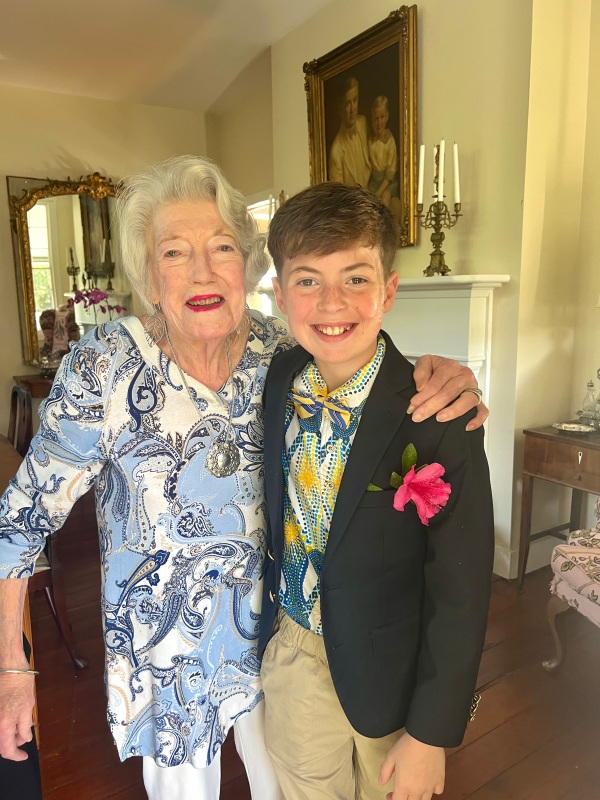


Recently, Rams sent a quick voice message on text- further evidence that he was finding joy there. On his weekly grocery trip back from Wal-Mart, there was abundant laughter in the background from his dorm buddies. Classic rock played and Rams said he was eating a Subway sandwich on the bus, mentioning between bites that he liked this song, by the way, and could we hear it? And oh, yeah, we’d see a credit card transaction for LED lights for his room, and he hoped that was okay. He recounted that he’d seen Aquaman at a real movie theater and recently learned the concept of “family style” dishes. “Mom- have you heard of this, family style eating? When the bowl is empty, they just refill it- it’s amazing!”
Ramsay’s enthusiasm was contagious and Brad and I laughed out loud, content that our family had shifted out of a place of heartache about boarding school into a place more flourishing. Soon, summer break arrives, and once again, we will be four.
With Love & Light,
–Tracy
